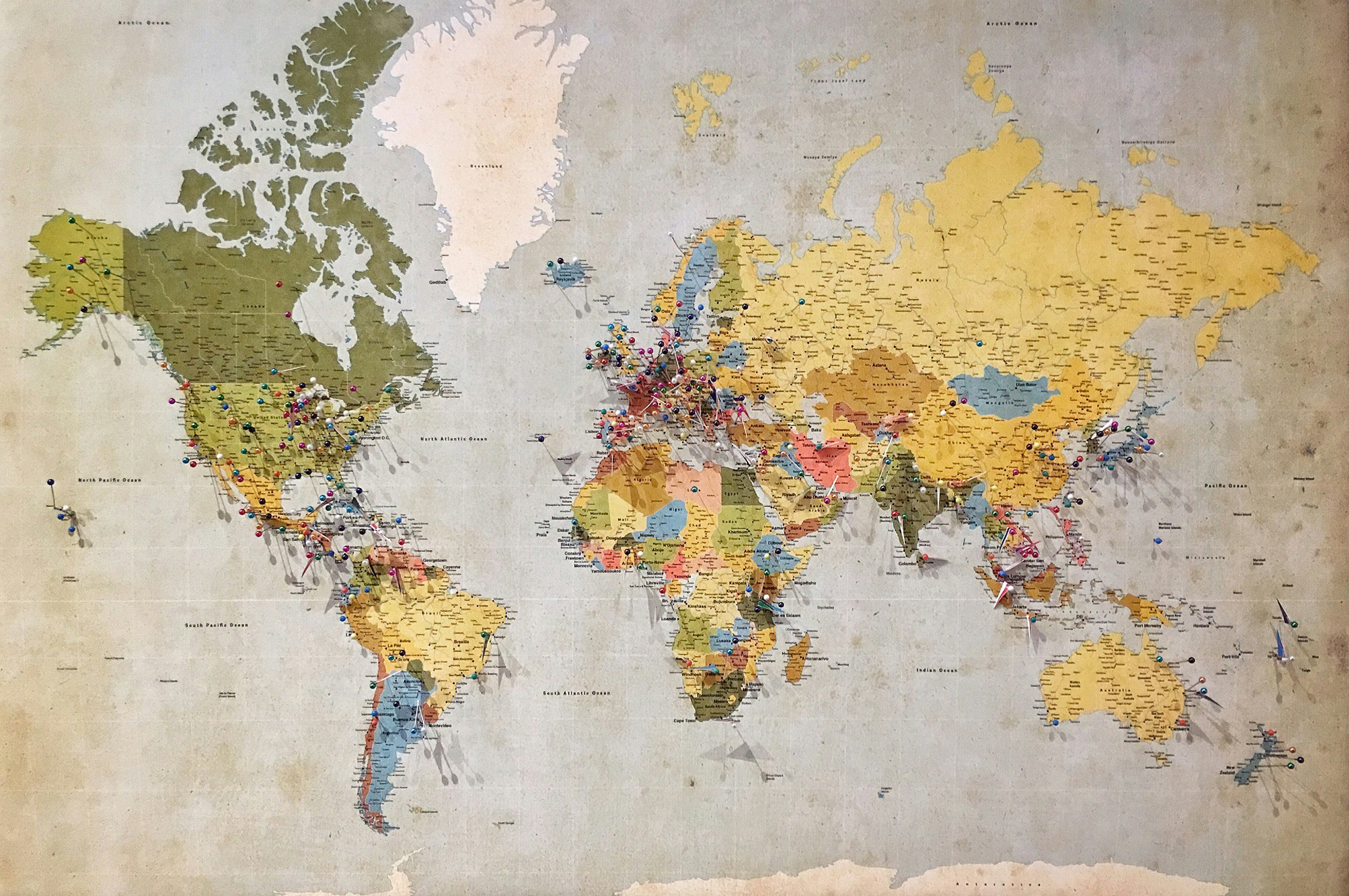Your dreaded Gen Ed requirement no longer has to drag on your schedule. While picking out an interesting class that satisfies the right credits and fits in your schedule may seem like a near-impossible task, we’re here to tell you it’s not.
Every school has different requirements for Gen Ed classes, so you’ll need a comprehensive guide like this for the University of Maryland.
The University of Maryland requires 40-46 credits for general education in addition to major requirements. These credits break down into two categories: Fundamental Studies and Distributive Studies, which includes I-Series and Diversity credits. Fundamental Studies tests students’ essential skills of communication, writing, math and critical thinking. Distributive Studies provides students with an interdisciplinary education; it requires science, history/social sciences and humanities courses. The I-Series and Diversity courses take students out of their comfort zones, engages in current issues and requires cultural competency.
For Fundamental Studies:
Fundamental Studies cover a lot of basic subjects that can be interesting. For example, many students take English 101 to satisfy the Academic Writing component of Fundamental Studies. If you can take above English 100, you have a variety of classes to choose — time to get a little creative.
1. ENGL 272- Writing Fiction: A Beginning Workshop

UMD freshman Julia Bischoff took English 272 to satisfy her Academic Writing credit. This creative writing class allowed for more freedom in practicing her writing skills. “We could do whatever we felt like,” Bischoff said of her writing assignments in class. However, the class consists of a strong structure of critiquing and building your writing techniques. In English 272, you get to satisfy your Academic Writing credit without having to take an English class similar to a class you took in high school.
2. COMM 107- Oral Communications: Practice and Principles

UMD students typically take COMM 107 during their freshman year to satisfy their Fundamental Studies requirements. COMM 107 is the most popular class of fall 2019, according to the UMD Institutional Research Planning and Assessment. With the right professor (and you have your choice of great professors) you can make the experience your own and pass with ease. UMD freshman Susan Liu took a specialized COMM class, available to STEM and business students. “I loved my instructor, Cassondra Pope. She made class so fun. Before our final group presentation, she had us do a juggling contest and a marshmallow spaghetti tower contest,” Liu said. COMM 107 may seem like a basic freshman class, but it becomes a staple to your freshman experience.
For Distributive Studies:
Distributive Studies courses will take up the bulk of your Gen Ed requirements, but also allow you to take more specific and interesting classes.
3. ITAL 411- Monsters and Demons: the Faces of Evil in Dante’s Inferno

An Italian class may not first pop into your mind when you think of a fun gen ed to take, but UMD offers an in-depth look at Dante’s Inferno under the Italian major. Don’t worry, the class won’t make you learn Italian. “The whole class was reading Dante’s inferno, and Professor Falvo was super passionate about the book and made the class very interesting,” UMD senior Sara Shemali said. Despite what you may think, the class isn’t too much work. “The workload was very low outside of class, and I actually enjoyed attending lecture,” Shemali said. Italian 411 gives you a deep look into a classic work of literature in a collaborative way. It provides a very rare experience you shouldn’t miss out on. If something so specific doesn’t peak your interest, you could satisfy your humanities Distributive Studies credit with an introductory class.
4. SOCY 100- Introduction to Sociology

Sociology 100 provides an introduction to the field of sociology, including “consideration of culture, patterns of social interaction, norms, values, social institutions, stratification, and social change,” according to the class description. This class details culture and human interactions on a broad scale, which could appeal to a variety of interests. “I think it is a great option for anyone looking to fill the DSHS requirement since it’s super interesting a very relevant subject for everyone. The course covers a wide range of topics and teaches many important skills,” UMD freshman Racheli Cohen said. Gen eds help you discover classes you’d never know you’d like. “I loved the class so much that I’m thinking of adding it as a double major,” Cohen said. Sociology 100 provides an introduction to a new subject that will certainly relate to you in some way and may broaden your horizons.
5. PHLY 236- Philosophy of Religion

If you want the essential humanities course and to spread your wings in college, look no further than a philosophy class. Philosophy 236 takes a philosophical look into the main components of religion. It delves into the conflict of nature and science, the nature of religious experiences and why people participate in religion. The class provides knowledge about both philosophy and religion. “I really learned a lot and I especially liked how we looked at a whole bunch of different perspectives and there were meaningful discussions,” UMD freshman Rachel Robin said. This class may give a taste of a small liberal arts education at such a large, metropolitan school like the University of Maryland and bonus: you learn two subjects in one class.
For I-Series:
The I-Series courses stretch you beyond your regular courses and focus on creative, specific elements of different majors.
6. HIST 289O- Lawlessness: From Pirates to Body-snatchers, Exploring the Legitimacy of Illicit Activity

You wouldn’t expect UMD to provide a course about swashbucklers and thieves, but in History 289O you can learn about the rogues of history. “I liked Hist 289O. It’s a lawlessness class. It’s really interesting and the professor is great,” UMD freshman Avi Grant said. Bonus: you can take this class to count for I-Series credit or Distributive Studies. However, with a lot of history comes longer essays. An I-Series class can fall into any major, so you can find something that interests you to fulfill the credit.
7. BMGT 289I- Why Good Managers Make Bad Decisions

Taking a business class may prove very beneficial in today’s fast-paced, capitalistic society. We all work jobs, have to navigate a career and serve . under a boss at some point in our lives. This course provides a different perspective by taking a broad view of management and providing students with experiential learning. “I took it because I wanted to be a manager and a leader,” said UMD sophomore Doyina Eyam-Ozung.
“The course fulfilled my I-series credit, and I liked how the class had hands-on components; these included a business simulation called Glo-Bus and an optional trip to Philadelphia to learn more about Benjamin Franklin’s history as an entrepreneur,” described UMD freshman Rebecca Lin. A business class can provide easy insight into the business world and give you some valuable advice that can be used to navigate through your careers. These introspective classes allow students to really explore niche parts of subjects they enjoy.
For Diversity:
You may think that Diversity courses would mostly consist of historical or social science lectures about race, but you can experience diversity through many different types of courses.
8. MUSC215- World Popular Musics and Identity

Experience diversity through learning different aspects of culture, like music. A music class appeals to your more creative side while teaching you about different countries around the world. “It was a stress-free class and [Professor Laura Schnitker] was an amazing lecturer. She was so knowledgeable about the subject and you could tell about how well she delivered. She always played music or showed music videos making the class fun and interesting,” UMD sophomore Erin Rodgers said. This class allows you to enjoy a creative subject you love while also expanding your worldview.
9. LARC160- Introduction to Landscape Architecture

There are Diversity courses to appeal to more STEM-minded students. Peter Frantz, who graduated from UMD in May of 2019, highly recommends the class. “I took this class because I thought it would be intriguing to learn the history, philosophy, and current practices behind landscape architecture,” Frantz said. Landscape architecture stretches students by requiring them to be knowledgable in the science and math fields as well as the humanities field. “Beyond the traditional lecture setting, we delved into the subject through discussion sections, guest speaker keynotes, and field trips to familiar University of Maryland sites that were designed by staff in the Landscape Architecture Department,” Frantz said. This class allows you to connect with your environment and experience well-rounded information around the subject of landscape architecture.
10. GEOG 130- Developing Countries

UMD also provides more straightforward Diversity courses that give insight into understanding different cultures in the world. This course delves into the social, historical and cultural factors around developing countries, as well as the distribution of poverty, migration and international policies. “The class is about all the factors that go into a developing country and the things that they struggle with,” UMD freshman Taylor Horn said. “You learn how developed countries interact with developing countries and how they play a huge role in the world. It opens your eyes to see how much of the world is living in poverty.“
The University of Maryland offers many courses to satisfy your gen ed credits, so it may prove difficult to find the best classes. Take a risk, look outside your major, try a class you don’t know much about and of course, use this list.



















